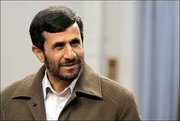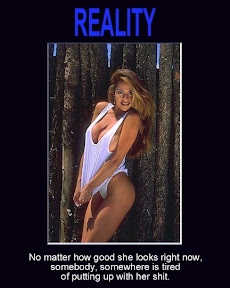
..Americans, What would you like to say to the people of Iraq?
PROTESTERS PLEAD FOR PEACE
4 years since invasion: Anniversary inspires marches
Calling for an immediate end to the American presence in Iraq, about 3,000 boisterous protesters marched from the Embarcadero through downtown San Francisco to Civic Center on Sunday afternoon.
What the march may have lacked in numbers, it made up for in intensity.
"Don't let Bush and Cheney break your spirit,'' the Rev. Amos Brown, leader of the local chapter of the NAACP and a former San Francisco supervisor, told the crowd at Civic Center Plaza.
Keith Goodman of Berkeley, who pushed his 4-year-old daughter in a stroller the length of the march, warned that the full story of Iraq is not being told.
"No one seems to be talking about the Iraqis who are dying," he said. "Imagine if we shut down the electricity and closed all the hospitals in this country, what would the death toll be here?''
Timed to mark today's fourth anniversary of the U.S. invasion, the march began shortly before 1 p.m. at Justin Herman Plaza near the Embarcadero and proceeded up Market Street. By 3:30 p.m., the speeches were done and the banners furled, and the crowd had begun to melt away.
Protesters also hit the streets Sunday in communities around the nation, including major cities like New York and Portland, Ore., and smaller towns like Boise, Idaho, and Bangor, Maine.
Among the San Francisco demonstrators were former members of the military who had served in Iraq.
"I felt comfortable with the idea of protecting America based on the assumption that Saddam (Hussein) had weapons of mass destruction,'' said 24-year-old Sean O'Neill of Fremont, a former Marine sergeant who served two tours in Iraq. "I started having real problems with the war when those assumptions proved false.''
There's growing discontent in the military over the war in Iraq, O'Neill said, even among soldiers who went to the Middle East for idealistic reasons.
"Things change for them when they get over, when they see the way things are going on the ground,'' O'Neill said.
Also participating in the March were members of Code Pink, a group that on March 11 began a round-the-clock vigil outside House Speaker Nancy Pelosi's Pacific Heights home. The group set up "Camp Pelosi" on the steps of her Broadway Street home and plans to stay until Congress votes on the supplemental appropriation bill for the war later this week.
"We're not against Nancy Pelosi. We're not protesting Nancy Pelosi. We want her to provide strong leadership to end the war now,'' said Cynthia Papermaster, a San Francisco resident and member of Code Pink. "We want her to cut funding and end the war now, not a year from now."
Pelosi has said she is sympathetic to their cause.
Doubt about the conduct of the war, which fueled November's Democratic takeover of Congress, continues to grow. A CNN poll of 1,027 adults released Sunday showed that only 35 percent of Americans are confident about the war in Iraq, down from 83 percent when the war began. Thirty percent of those surveyed were proud of the war, down from 65 percent in 2003.
Sunday's San Francisco march was in keeping with the city's reputation. The air reeked of burning white sage and patchouli and, occasionally, marijuana. Two men in tight shorts and arm ruffles danced on stilts, accompanied by musicians playing accordions, clarinets, bongos and finger cymbals. At Civic Center, booths hawked literature, T-shirts and bumper stickers promoting the virtues of movements and philosophies that would be considered irregular or even scandalous in more conservative quarters.
While Iraq was the day's main focus, the marchers had plenty of other concerns. More than a half-dozen speakers fired up the protesters before the march, calling on the United States to abandon its military bases throughout the world, most especially in Iraq, Afghanistan and the Philippines.
People carried signs saying "Impeach," "No Blood for Oil" and even "Obama '08.''
About 30 American Indians at the head of the march called for an end to more than 500 years of "illegal occupation'' of North America by people of European descent.
"Native Americans are leading this protest because we've always been marginalized in this country,'' said Morning Star Gali of California's Pit River tribe. "In the last couple of years, we've been speaking out more and more against the occupation in Iraq.''
San Francisco police no longer estimate crowd sizes, although department spokesman Sgt. Neville Gittens said protest organizers told police to expect 3,000 to 5,000 marchers. The Chronicle's estimate of 3,000 is based on a count of the crowd as it moved off Market Street onto McAllister Street. A speaker praised the crowd at Civic Center for its size, telling the crowd it was 3,000-strong.
There were no reported problems with the march, Gittens said.
The protest didn't attract anywhere near the crowds that showed up for similar events in 2002 and 2003 that blocked access to much of downtown San Francisco.
"There are demonstrations all over the Bay Area today," said Berkeley resident Bill Booth, 82. "That may have diluted the turnout in San Francisco a little."
War demonstrations today
-- San Ramon: Several groups are participating in a rally to protest Chevron's role in the Iraq war, 7-11 a.m. at the oil company's headquarters, 6001 Bollinger Canyon Road.
-- San Francisco: A civil disobedience die-in and vigil against war funding by the 1st Lt. Watada Support Group, noon, office of U.S. Sen. Dianne Feinstein, Market and Montgomery streets.
-- San Francisco: A rally in front of House Speaker Nancy Pelosi's office, noon, Federal Building, 450 Golden Gate Ave.
-- San Francisco: Several vigils marking the fourth anniversary of the Iraq war are planned by MoveOn: Market Street BART stations, 11:45 a.m.; corner of Lake Street and Park Presidio, 5 p.m.; Justin Herman Plaza, 6:45 p.m.; top of Bernal Hill, 7:15 p.m.
-- Alameda: Vigil in front of City Hall, 2263 Santa Clara, 7-8 p.m.
-- Berkeley: West Berkeley Candles for Peace candlelight vigil at the intersection of University and San Pablo avenues, 6 p.m.
-- Oakland: Silent vigil at the Pergola on Lake Merritt, Embarcadero between Grand and Lakeshore avenues, 6 p.m.
-- Petaluma: Candlelight vigil, Helen Putnam Plaza, 6 p.m.
-- Sonoma: Candlelight vigil to support the troops, Sonoma City Hall Plaza, 1 The Plaza, 6 p.m.
Chronicle political writer John Wildermuth contributed to this report.
This article appeared on page A - 1 of the San Francisco Chronicle
MONDAv';APRIL 30, i007
$ decline tracks US fall from grace
Weakening Currency Signals Shaky Future For World's Strongest Economy
Steven C Johnson
New York: The United States may have no military equals, but the challenges to its financial power have become impossible to ignore.A stark reminder came on Friday when the weakening dollar slumped to a record low against its main rival, the euro, after the U.S. economy recorded its fourth consecutive quarter of below-trend growth. Experts say the cons.equences of its long-term decline could have deep significance - for average Americans and for the country's position as an unrivaled global power."We can no longer view ourselves as king of the hill," said Leo Melamed, chairman emeritus of the Chicago Mercantile Exchange and founder of the world's first market for financial futures. For most of the 20th century, things were different. The United States was the only country that was stronger at the end of World War II than at start. Since the end of the Cold War, however, foreign rivals have knocked it off its pedestal in a host of eco-
nomic rankings. To students of history, the situation looks like a rerun of Britain's decline 60 years ago, when massive postwar debt and a sharp slide in the pound forced the dissolution of the empire and marked the end of Britain's days as a major world power.Today; China is growing more rapidly than the United States, and many investors and historians alike see the European Union as its economic equal. Wall Street seems to be losing its edge, too, even though the Dow Jones industrial average of 30 major U.S. stocks closed at a record high this
IN BIG TOUBLE
· Companies are increasingly looking towards China & London to go public
· The US must attract $3bn a working day to finance a gaping current account deficit
· China with over $1 trillion in reserves is one of the biggest creditors
· The situation may lead to faster US inflation and a declining standard of living
week. Companies that would once have turned to New York to raise money now increasingly go public on exchanges in London and Hong Kong. The dollar is perhaps the biggest problem. As a net debtor, the United States must attract some $3 billion every working day to fmance a gaping current account deficit that in 2006 amounted to 6.5 % of gross domestic product.Economic rivals such as China and Japan, on the other hand, boast massive surpluses. Since Americans also spend more than they save, the money to cover the U.S. deficit
must come from foreign lenders such as central banks.China, which holds more than $1 trillion in foreign currency reserves, is one of the biggest creditors.As the dollar has steadily weakened over the last year, the value of the dollar-denominated assets held by central banks has also declined.The trend may motivate foreigners to start holding more euros instead, exacerbating pressure on the dollar and leading to faster US inflation and a declining standard of living.That's increasingly possible because euro-denominated debt today accounts for a bigger share of the international bond market than do dollar-based securities. That means oil exporters could fmd it easier to start pricing crude in euros, Rogers said, adding to the fmancial burden on the United States, the world's biggest consumer of oil. . While a weaker dollar may boost U.S. exports and the profits of U.S. companies with overseas operations, weaker foreign demand for U.S. Treasury bonds would push up long-term
interest rates, raising mortgage payments for U.S. homeowners and borrowing costs for an indebted government.There is a potential upside to the dollar's fall. For one thing, its decline would help shrink the massive U.S. trade deficit. Also, some economists argue that competition between countries is part of globalization's rising tide that will eventually lift all boats.Others worry about America's global reach, especially as the war in Iraq strains both U.S.fmances and credibility."We are doing terrible damage to ourselves (in Iraq), and the Chinese, are simply sitting back and acting in many parts of the world with increasing influence," said Zbigniew Brzezinski, a former national security adviser. under President Jimmy Carter.Indeed, the economic leverage China holds over the United States may one day allow it to absorb Taiwan without a fight, said H. W. Brands, a University of Texas history professor and author of "The Hundred Years' War Over the American Dollar." REUTERS
$ decline tracks US fall from grace
Weakening Currency Signals Shaky Future For World's Strongest Economy
Steven C Johnson
New York: The United States may have no military equals, but the challenges to its financial power have become impossible to ignore.A stark reminder came on Friday when the weakening dollar slumped to a record low against its main rival, the euro, after the U.S. economy recorded its fourth consecutive quarter of below-trend growth. Experts say the cons.equences of its long-term decline could have deep significance - for average Americans and for the country's position as an unrivaled global power."We can no longer view ourselves as king of the hill," said Leo Melamed, chairman emeritus of the Chicago Mercantile Exchange and founder of the world's first market for financial futures. For most of the 20th century, things were different. The United States was the only country that was stronger at the end of World War II than at start. Since the end of the Cold War, however, foreign rivals have knocked it off its pedestal in a host of eco-
nomic rankings. To students of history, the situation looks like a rerun of Britain's decline 60 years ago, when massive postwar debt and a sharp slide in the pound forced the dissolution of the empire and marked the end of Britain's days as a major world power.Today; China is growing more rapidly than the United States, and many investors and historians alike see the European Union as its economic equal. Wall Street seems to be losing its edge, too, even though the Dow Jones industrial average of 30 major U.S. stocks closed at a record high this
IN BIG TOUBLE
· Companies are increasingly looking towards China & London to go public
· The US must attract $3bn a working day to finance a gaping current account deficit
· China with over $1 trillion in reserves is one of the biggest creditors
· The situation may lead to faster US inflation and a declining standard of living
week. Companies that would once have turned to New York to raise money now increasingly go public on exchanges in London and Hong Kong. The dollar is perhaps the biggest problem. As a net debtor, the United States must attract some $3 billion every working day to fmance a gaping current account deficit that in 2006 amounted to 6.5 % of gross domestic product.Economic rivals such as China and Japan, on the other hand, boast massive surpluses. Since Americans also spend more than they save, the money to cover the U.S. deficit
must come from foreign lenders such as central banks.China, which holds more than $1 trillion in foreign currency reserves, is one of the biggest creditors.As the dollar has steadily weakened over the last year, the value of the dollar-denominated assets held by central banks has also declined.The trend may motivate foreigners to start holding more euros instead, exacerbating pressure on the dollar and leading to faster US inflation and a declining standard of living.That's increasingly possible because euro-denominated debt today accounts for a bigger share of the international bond market than do dollar-based securities. That means oil exporters could fmd it easier to start pricing crude in euros, Rogers said, adding to the fmancial burden on the United States, the world's biggest consumer of oil. . While a weaker dollar may boost U.S. exports and the profits of U.S. companies with overseas operations, weaker foreign demand for U.S. Treasury bonds would push up long-term
interest rates, raising mortgage payments for U.S. homeowners and borrowing costs for an indebted government.There is a potential upside to the dollar's fall. For one thing, its decline would help shrink the massive U.S. trade deficit. Also, some economists argue that competition between countries is part of globalization's rising tide that will eventually lift all boats.Others worry about America's global reach, especially as the war in Iraq strains both U.S.fmances and credibility."We are doing terrible damage to ourselves (in Iraq), and the Chinese, are simply sitting back and acting in many parts of the world with increasing influence," said Zbigniew Brzezinski, a former national security adviser. under President Jimmy Carter.Indeed, the economic leverage China holds over the United States may one day allow it to absorb Taiwan without a fight, said H. W. Brands, a University of Texas history professor and author of "The Hundred Years' War Over the American Dollar." REUTERS



























6 comments:
woohoo Saby posts a HNT! COOL :)
Keshi.
Some Sri Lankan women are so attention depraved.
and some racists dont know English. or should I say Hinglish? LOL!
Keshi.
the depraved deranged woman is here! :D
Cleave, Crave and Bleed! - in other words "I need attention Y'ALL! "
hee hee
Post a Comment